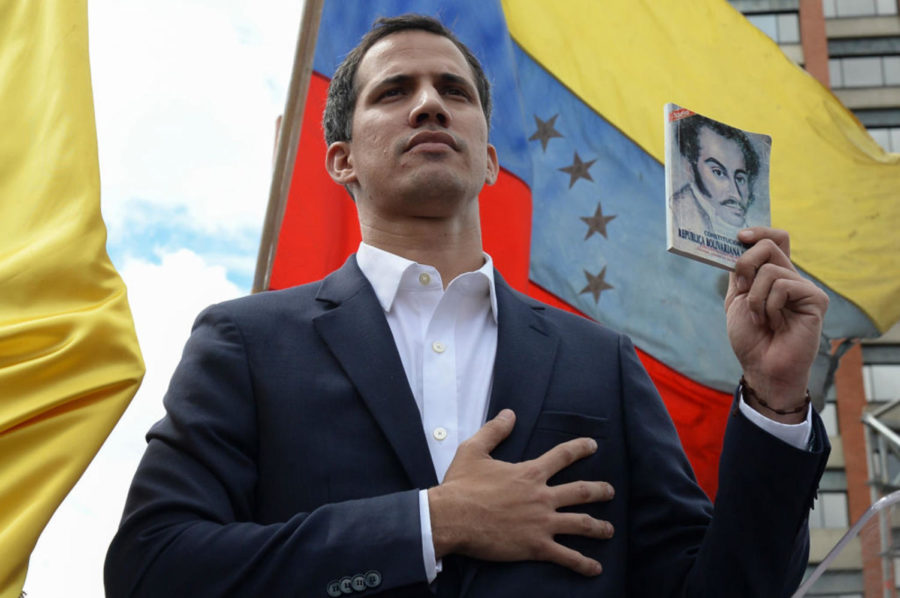Venezuela’s opposition acts like a government and makes plea for money
FEDERICO PARRA/AFP/Getty Images/TNS
Venezuela’s National Assembly head Juan Guaido declares himself the country’s “acting president” during a mass opposition rally against leader Nicolas Maduro, on the anniversary of a 1958 uprising that overthrew military dictatorship in Caracas on January 23, 2019.
February 15, 2019
In a display of their ability to act as a government, several Venezuelan opposition leaders traveled to Washington on Thursday to share first steps of their plan to lead the country out of its humanitarian crisis, and to ask the international community for money to do it.
It’s the first time the government of self-proclaimed President Juan Guaido has organized an international event. Leaders touted attracting more than 50 governments, multilateral financial institutions and nongovernment agencies to the Global Conference on the Humanitarian Crisis in Venezuela at the Organization of American States.
They announced that they had raised more than $100 million from participating governments since Jan. 23, when Guaido recognized himself as president. Dozens of countries, including the United States, have since also recognized him as the nation’s interim president.
“We must open thousands of windows to bring humanitarian aid to Venezuela,” said Carlos Vecchio, the Guaido government’s top diplomat in Washington.
Experts from across Venezuela were brought to Washington to remind leaders of the realities on the ground and explain the most immediate health and medical requirements.
The U.S. Secretary of Health and Human Services Alex Azar hosted a panel where he warned that communicable diseases once thought rooted out had reemerged in Venezuela.
Trump’s special envoy to Venezuela, Elliot Abrams, promised the group that more U.S. aid will be delivered to the Venezuelan people.
“Any solution to Venezuela’s crisis must begin with the definitive departure of the (Nicolas) Maduro regime,” Abrams said.
But the nearly four-hour event ended with a reminder of the difficulties affecting all aspects of life in Venezuela — Guaido couldn’t address the group himself because of internet connection issues in the South American country.
“We have some technology issues in our country,” Vecchio said.
Nonetheless, it was a dramatic show of international support and an example of the opposition’s ability to mobilize the international community, said current and former U.S. officials.
“It’s putting the focus where it deserves to be on reconstruction of society in Venezuela and that first step is humanitarian aid,” said Carlos Trujillo, the U.S. ambassador to the Organization of American States.
The Trump administration is working with the international community and opposition leaders on how to deliver tens of millions of dollars worth of aid when the border is being blocked by the Venezuelan military.
Guaido has promised the Venezuelan people that aid will be delivered starting Feb. 23, but has given few details on how that would happen if the military doesn’t allow it through.
David Smolansky, who handles the migrant and refugee issues for the opposition, said one way is to use the more than 100 volunteers who have volunteered to go and pick up the aid and bring it back to be distributed.
“We’re planning a human chain,” he said.
Ambassador Roger Noriega, who served as assistant secretary of state for Western Hemisphere affairs under George W. Bush, said the conference demonstrated the opposition’s strength and organizational skill. It was also important for the international community to hear directly from opposition leaders, he said.
“We have a government that is just taking shape, the Guaido team,” Noriega said. “And the fact that they’re able to bring up experts from the country to talk about their vision and the immediate challenges, that is an important first step. There is clearly a lot more work that needs to go into this.”








